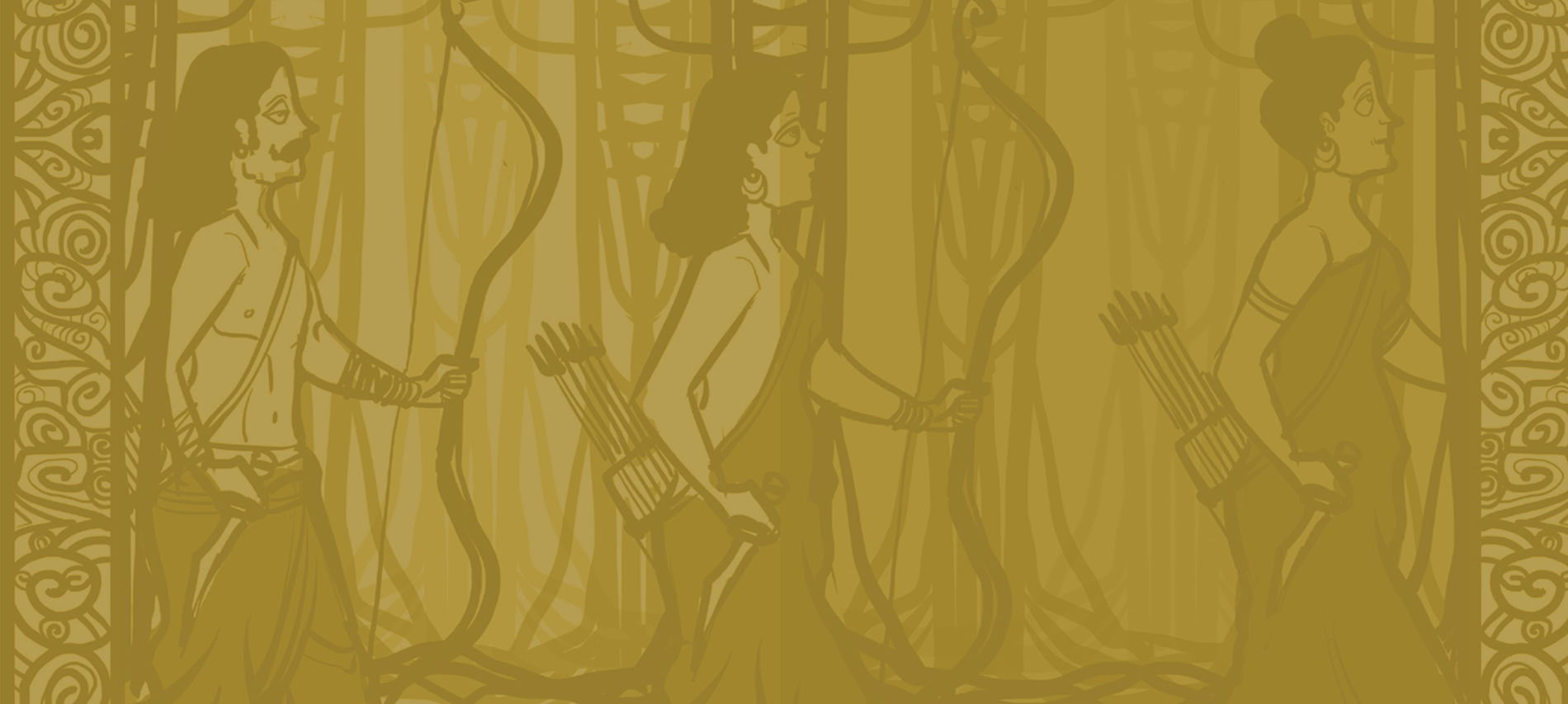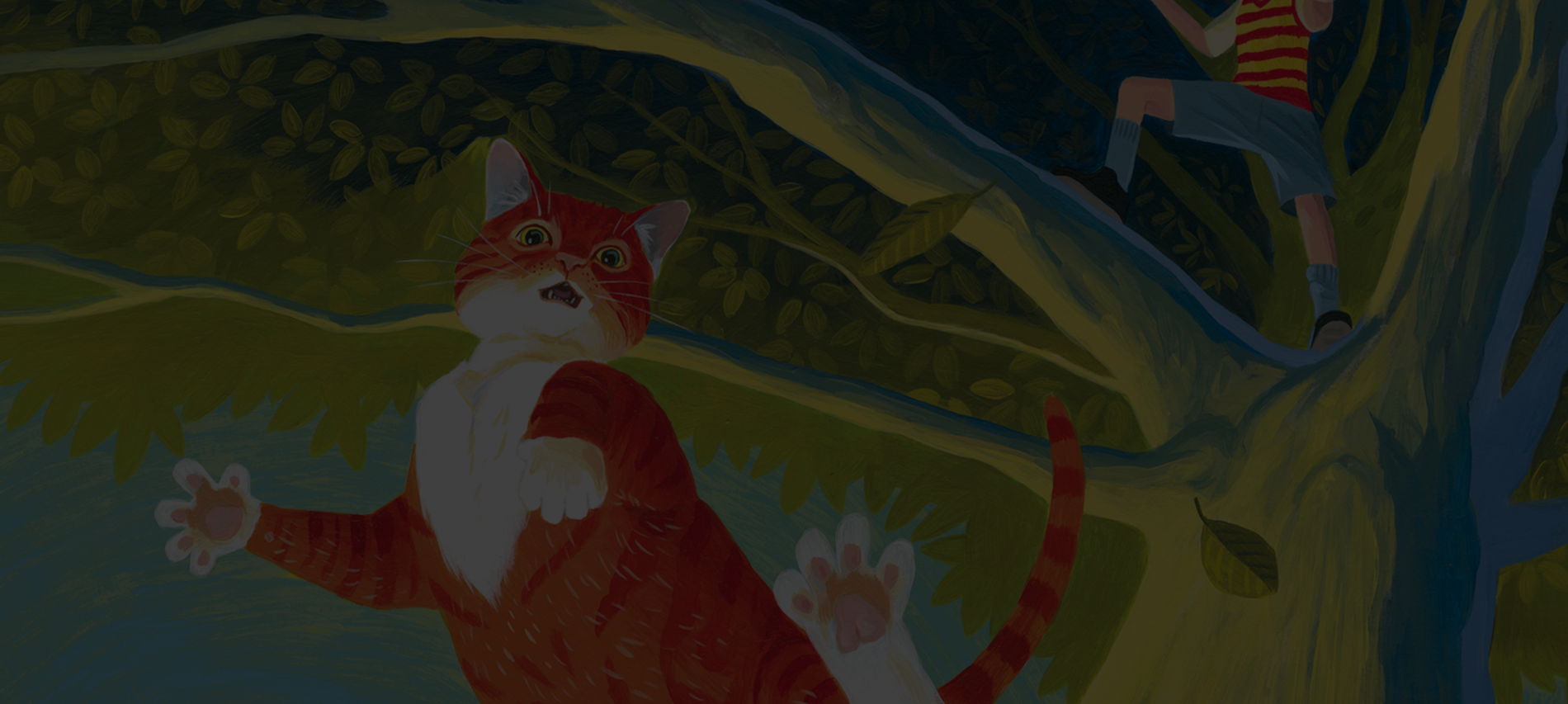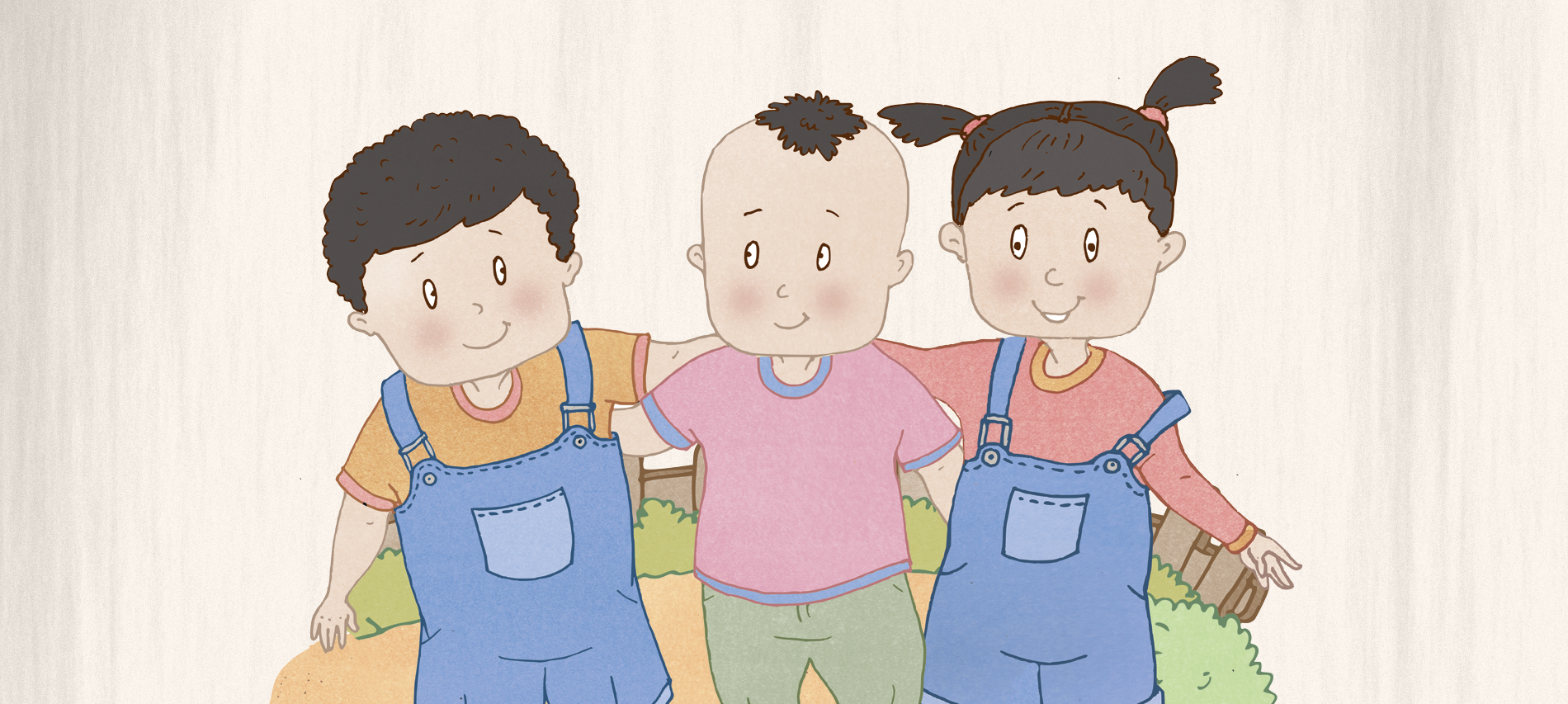The great war of Kurukshetra is synonymous with the epic ‘Mahabharata’, a war fought between brothers and sons — stories that have lived on through generations. But have you ever wondered about where it all began for the Pandavas?
Sudha Murty’s ‘The Serpent’s Revenge: Unusual Tales From the Mahabharata’ brings to life hidden gems from the pages of the ‘Mahabharata’ that are sure to leave your little one enthralled and asking for more.
Here’s a snippet from the book.
The Man Who Became a Woman
According to the Mahabharata, the lunar dynasty (also called Chandravansha or Somavansha) is one of the most prominent warrior houses in India. As the name suggests, it is believed that this dynasty descended from the moon.
A long time ago, there lived a man named Vaivasvata Manu, considered to be the first man on Earth, and his wife, Shraddha. The couple didn’t have a child for many years, so they decided to perform a yagna in the hope of pleasing the gods. However, Shraddha secretly hoped for a daughter, while Manu wanted a son. In time, their prayers were answered and a son was born to them, whom they named Sudyumna.
Years passed and Sudyumna grew up to be a fine young man. One day, he went hunting with his friends to the beautiful forest of Sharavana (the forest of reeds). No sooner had the all-male troupe entered an enchanted portion of the forest than they were magically transformed into young women. None of them had any idea how it had happened or what they were to do.
As the troupe began wandering deeper into the forest as women, Sudyumna decided to reinvent himself according to the body he now had, and called himself Ila. When Ila and her friends became desperate to leave their beautiful surroundings and return to their homes, Goddess Parvati appeared in front of them. ‘You and your friends have entered my garden,’ she said. ‘Look around you—this is no ordinary place. In fact, no men are allowed to come here. If they do, they turn into women immediately and permanently.’
Seeing Ila’s dismayed face, Parvati smiled. ‘I know you came here by accident,’ she said gently. ‘So I will bless you, child. May you lead a happy life irrespective of your gender. From this day on, you will be able to choose what you want to be—male or female—whenever you want.’
To everyone’s surprise, beautiful Ila chose to remain a girl, and embraced her new identity with her heart and soul. Meanwhile, Budha, the god of the planet Mercury and the son of the moon-god, Chandra, noticed Ila’s exquisite beauty and fell hopelessly in love with her. Ila reciprocated his feelings and the two were wed. In due course, Ila gave birth to a son called Pururava.
Time passed and Ila chose to revert to her male form, Sudyumna. He returned to his kingdom and ruled it wisely. As was expected of a king, Sudyumna got married and had many children of his own. He continued taking care of his subjects until he was old, after which he handed over the kingdom to his first son, Pururava, and retired to the forest to live out the remainder of his days.
Pururava, the grandson of Chandra, thus introduced the lunar dynasty. He ruled from his kingdom’s capital, Pratishthana (today’s Allahabad in Uttar Pradesh).
The great Pandavas of the Mahabharata are a part of this dynasty. King Yayati, one of the ancestors of the Pandavas, was succeeded by his youngest son, Puru. His dynasty came to be known as the Puru dynasty.
Another one of Puru’s descendants was Emperor Bharata, the son of King Dushyanta and Shakuntala. Bharata was such a great king that our country was named after him and called Bharat or Bharatvarsha.
King Kuru was born after twenty-five generations of the Puru dynasty, and gave rise to the Kuru dynasty. After fifteen more generations, the Pandavas and the Kauravas were born. In theory, both the Pandavas and the Kauravas are descendants of King Kuru, but the Pandavas, who were the sons of Pandu, chose to carry their father’s name and not the identity of the clan.
How fascinating is this story! Get a copy of this charming book for your little one and dive right into those corners of ‘Mahabharata’ you missed out on before!
And oh, while you’re at it, don’t forget to pre-order your copy of ‘The Man from the Egg: Unusual Tales about the Trinity’ by Sudha Murty. The second in this series of a Pandora’s box of stories is just about to open up!

Tag: book nibbles
Bollywood: The Films! The Songs! The Stars! Foreword by Amitabh Bachchan
Who isn’t enchanted by the glitz and glamour of the world’s largest cinema industry AKA Bollywood?
With Bollywood: The Films! The Songs! The Stars!, be mesmerized by the glamour and colour of Bollywood. Known for their glittering costumes and epic song-and-dance routines, the charming movies produced in Mumbai have captured the hearts not just of Indians but of people the world over.
Here’s what Amitabh Bachchan has to say in the foreword of this lavishly illustrated book.
I abhor the title of this book. The Indian Film Industry is what I shall always refer to as Cinema in India. We are an independent creative industry and not a derivative; any attempt to imply otherwise, shall not find favour with me.
But the absence of any kind of film documentation is another malaise that has been of great concern to me; one that I lament greatly. To find a global publishing house now wanting to tap into “the increasing interest in the Hindi film industry from national and international quarters” is indeed most laudable.
Hindi cinema, indeed the entire cinema in India, is the largest film-producing unit in the world. To me it has always played the role of a unifier, an integrator. When we sit inside that darkened hall we never ask who the person sitting next to us is – his or her caste, creed, colour, or religion. Yet we enjoy the same story, laugh at the same jokes, cry at the same emotions, and sing the same songs. In a world that is disintegrating around us faster every day, where can one find a better example of national integration than within those hallowed portals of a cinema hall? There are not many institutions left that can boast or propagate such unity.
I once asked a Russian gentleman in Moscow what it was that attracted him to Hindi cinema. He replied: “When I come out of the theatre after watching a Hindi film, I have a smile on my face and a dry tear on my cheek!” There can be no better assessment of our films than this – and that too from an individual who was not an Indian. But my father, the great poet and litterateur, Harivansh Rai Bachchan, summed it all up most succinctly. On asking him one day what Hindi cinema meant to him, he said: “I get to see poetic justice in three hours! You and me shall not see this in a lifetime… perhaps several lifetimes!”
SMM Ausaja, a friend and a passionate film admirer, curator, and journalist, contributes to a section of this book. My wishes to him and to the publication.

Prince Amritsena Saves the Day!: ‘The Bird With Golden Wings’ — An Excerpt
Master storyteller, Sudha Murty, weaves magical tales of princesses and little girls, talking animals and an enchanting world of the good and the evil for children in her book, ‘The Bird With Golden Wings: Stories of Wit and Magic’.
In the short story, ‘Skills for a Prince’, Amritsena, a young and intelligent prince finds a unique way to test the honesty and integrity of a few of his subjects. How? Let’s find out!
Skills for a Prince
Amritsena, a young prince, was very popular with his subjects. Everyone praised his sense of fairness. He also loved to play pranks and made the courtiers laugh. He often disguised himself and roamed the streets of the capital city, listening to what the people were saying and learnt about the problems of the common man in this way.
During one such tour, he came across three young men in the outskirts of the city. From their attire they appeared to be strangers. They were huddled together, talking to each other.
Amritsena walked up to them and said, ‘You look new to this city. Can I help you?’
One of the men replied, ‘We are students of the sage Kashyapa and have recently finished our studies. We are looking for work, where we can put our special skills to use.’
At once, Amritsena’s ears pricked up. ‘And what are these special skills? I work in the king’s court and I may be able to help you find a job there.’
One young man said, ‘Just by tapping my feet, I can make out what is below the ground.’
The second one said, ‘I can always tell in which direction one may find hidden treasure.’
The third said, ‘Once I have seen a person, I can recognize him anywhere, even if he is in disguise.’
Amritsena heard them out, thought for a minute and said, ‘I am also a man with a special quality.’
‘What is that?’ they asked.
‘If anyone is in difficulty, I can always find a solution and rescue the person.’
‘From where did you get this gift? Who taught you?’
‘I have always had this gift, since I was a child,’ replied Amritsena with a smile. Then he said, ‘Why don’t you show me a sample of your special skills as we walk to the city? I can then tell the king about you.’
The four men began walking. After some time, one stopped and said, ‘Below us lies a tunnel.’
They started digging and, sure enough, they found a tunnel. They began to walk through the tunnel, which led them into the palace.
Now the second man stopped suddenly and said, ‘Just around the corner there is a secret treasury.’
Amritsena, who knew this to be true, was amazed. He smiled secretly to himself and said,
‘You three wait here. If the guards see you they will mistake you for thieves. Let me go and check.’ Then he walked quickly ahead, turned a corner where he stripped off his disguise, and presented himself before the guards.
‘There are three men in the tunnel plotting to loot the treasury,’ he told them. ‘Go and arrest them immediately. They should be produced in court first thing tomorrow morning.’ Saying this he walked away to his room and went to bed.
‘There are three men in the tunnel plotting to loot the treasury,’ he told them. ‘Go and arrest them immediately. They should be produced in court first thing tomorrow morning.’ Saying this he walked away to his room and went to bed.
The next morning, the three men were presented in the king’s court. Seeing Amritsena on the throne, the third man realized he was the same man who had got them arrested. He whispered this to his friends. Now they were scared that the prince would punish them for having entered the royal treasury just to show off.
‘How did you find the way into the secret tunnel?’ thundered the king, Amritsena’s father.
‘We…we j-just…’ stammered the men, shaking in fear.
Amritsena watched them, trying not to laugh. Then he stepped in and whispered in his father’s ear, ‘They are not thieves. I met them last night just outside the city. They are learned men with wonderful gifts. I only wanted to test them to see if they were telling the truth or not. We should keep them in our kingdom as their talents will help us in many ways.’
The king nodded, and said, ‘On the request of the prince I release you. You will work for me from now on, and use your gifts for the betterment of this kingdom.’
The three men sighed in relief. Amritsena had rescued them—just as he had said he could!
Dive into the world of fascinating tales in Sudha Murty’s ‘The Bird With Golden Wings: Stories of Wit and Magic’ and get to know some amazing stories of wit, humour and love!

‘Shoot. Dive. Fly’, Foreword by M.S. Dhoni
Rachna Bisht Rawat’s ‘Shoot. Dive. Fly’ aims to introduce teenagers to the armed forces and what it is like to have a career in the forces. The book is a collection of twenty-one nail-biting stories of adventure and thrill of a career in uniform. The book also has army personnel talk about what the armed forces have taught them.
Here’s the foreword by Mahendra Singh Dhoni, ex-Indian cricket team captain.
My dear friends,
It gives me great pleasure to write the foreword for Shoot. Dive. Fly. The Indian Army is one of the most respectable and exciting careers our country offers young people and it surprises me that the Army faces a shortage of officers year after year. This is probably because most of us do not know what an amazing variety of jobs it offers. Perhaps this is also because Army officers are not permitted to talk to the media and so we never get to hear about the amazing things they do.
I compliment the Army on giving Rachna Bisht Rawat access to young serving officers to share with us the experiences of the fascinating jobs they do.
This book will help bust the false belief that an Army officer is a man with a gun who lives on the borders of the country, cut off from the rest of civilization, waiting for a war to begin, which might sound like a boring job to a lot of teenagers. They do that, of course, and we are very proud of them for it, but that’s not the whole truth. Army officers do a lot of other things too that most teens want from a career. The Army has engineers, doctors, helicopter pilots, drone fliers, cyber warriors, Olympians, Everest summiteers, skydivers, sailors, marathon runners, shooters—and yes, even cricketers—and a host of other professionals that we often don’t get to hear about. These are men and women who are all trained for combat but they work in their particular fields with all the support of the Indian Army to reach the top. You, too, can choose one of these opportunities and get paid to be trained and excel in your dream job. Not many, if any, industries or institutions give you this freedom. And how do I know all this? Because I happen to be an officer in the Indian Territorial Army too.
I am sure you will enjoy reading the real-life stories of young officers who went beyond the ordinary to reach great heights. This book includes the story of Colonel Ivan J. Crasto, SC, who climbed down a rope from a hovering helicopter to rescue all ten tourists trapped on board a trolley hanging from a snapped wire. It also tells of Colonel Rajesh Unnikrishnan who climbed down forty feet into a dark, gaping borewell to rescue a small child who had fallen in. In these pages, you will meet Colonel Sameer Singh Bisht, SM, whose gun jammed in an encounter with Kashmiri terrorists but he managed to keep his nerve and emerge victorious. You will read of young mountaineer Major Deepika Rathore, who has climbed the mighty Mount Everest twice and of my fellow paratrooper Major Sandesh Kadam, who jumped out of a plane at 8,500 feet to find that both his main and emergency parachutes would not open. How did he land alive and undamaged in spirit to the extent that he is raring to recover completely and go back to his duty, you might ask? To know that, you will need to read this book, and/or join the Army.
I shall sign off by wishing you the best in whatever career you choose. When I am old and sitting in front of the TV watching some of you play cricket for India, or some of you do amazing things that the news channels report, I shall smile and applaud for you—just like you do for me, when I hit a six or take a catch. I shall be proud of all of you. Go on and do your best in life. But do consider wearing the uniform once before you make a final choice. I did!
Jai Hind! Jai Hind ki Sena!
Lieutenant Colonel Mahendra Singh Dhoni

The Story of Mahatma Gandhi And Where It All Began: ‘Junior Lives: Mahatma Gandhi’ — An Excerpt
Mahatma Gandhi, lovingly called Gandhiji and the Father of the Nation, has been remembered by the entire world for his honest, non-violent methods of leading a nation to independence.
In Sonia Mehta’s ‘Junior Lives: Mahatma Gandhi’, the author explores the life of Gandhiji from his childhood and shows us how he became the leader that he is today.
Here’s a short excerpt from the book.
The thirteen-year-old lad was impatient. He wanted to get back to his friends, who were having a great time playing outdoors. But here he was—stuck indoors, made to dress up in clothes that were icky and uncomfortable.
‘Can I go now?’ he asked his mother, trying to shrug off the elaborate outfit she was trying to get him to wear.
‘No, Mohan,’ she replied. ‘You can’t go play with your friends today. It’s your wedding day.’
That young boy was Mohandas Karamchand Gandhi. At thirteen years of age, he was about to get married to a girl who was just a little older than he was. His family would never have believed it then, but this boy was to grow up to become one of the world’s greatest leaders, who would lead India to freedom. He showed people a nonviolent way of life. Millions of people adored him and gave him titles like Father of the Nation, Bapu (meaning father) and Mahatma (meaning great soul). What an incredible achievement for such an ordinary boy, born to such ordinary parents!
A Happy Family
Young Mohan (for that was what his family called him) was born to Karamchand and Putlibai on 2 October 1869. Theirs was a large, happy family. Mohan had a sister and two brothers—all older than him, so you can imagine how much he was loved and petted. The family was quite wealthy and lived in a big, three-storeyed house in the Indian port-city of Porbandar, in what is now Gujarat. Karamchand was an educated man. The ruler of Rajkot admired him and made him the diwan of Porbandar. As diwan, he managed the business of the state. People respected Karamchand a lot and came to him for advice.
When Mohan was a young boy, he was very shy. He would spend all his time with his books. This made him very thoughtful. However, he didn’t love studies; in fact, he found maths rather hard. But he was a good student overall, and his teachers thought well of him. One day, Mohan got his father’s permission to see a play about a king named Raja Harishchandra. The special thing about this king was that he never lied, no matter what happened to him. Mohan was so impressed by this play that he swore to never tell a lie in his life.
Always, Always Truthful
One morning, Mohan’s class was given a spelling test. Mohan knew all the spellings, except that of ‘kettle’. The English teacher, keen to prove that he was a good teacher, wanted all his students to know every spelling so that he could impress his superiors. When he saw that Mohan was unsure, he prodded him to peep at his neighbour’s slate and see the spelling.
‘But that would be cheating,’ an aghast Mohan thought. He refused to look at his neighbour’s slate, and eventually was the only boy in class who did not get all his spellings right. But that didn’t bother him. He was more bothered that his teacher had told him to cheat.
One of the only times Mohan lied was when he was in his early teens. He stole some gold from his brother and sold it. But it wasn’t for himself. He gave the money to his other brother to help him get out of debt. He couldn’t sleep that night. He tossed and turned, feeling awful. Finally, he confessed to his father. He was ready for any punishment. But instead of getting upset, Mohan’s father wept. He was hurt that his son had lied, but happy he had confessed.
Mahatma Gandhi’s fascinating life goes way beyond the years documented in the pages of history. Get to know Mohandas Karamchand Gandhi before he became GandhiJi with Sonia Mehta’s ‘Junior Lives: Mahatma Gandhi’!

‘This is no ordinary cat’: The Nine Lives of Montezuma — An Excerpt
As the famous saying in English tells us every cat has nine lives, Michael Morpurgo’s The Nine Lives of Motenzuma proves that cats indeed are survivors in this big, bad world.
Montezuma, a ginger cat, is anything but your ordinary furry friend. As soon as he is discovered, the characters in the story realise that this cat is not a normal alley cat but a creature with magical powers, much like its namesake, the survivor King of the Aztec.
Here’s a short excerpt from the book.
He found Montezuma crouching at the end of a long tapering branch that hung out over the pond. The branch looked thick enough and safe enough near the trunk, but the further away it stretched the more fragile it looked. Matthew stood in the fork of the tree and considered all the alternatives, trying to ignore the warnings and advice from below. He could not climb out along the branch to Monty – the branch would not take his weight. He needed a net to throw out over the cat, but there was no-one who could bring a net up to him – neither his father nor his mother could climb trees – at least he had never seen them. He would have to talk the kitten back to safety, that was the only way.
‘Monty,’ he said in as soothing a tone as he could manage. ‘It’s me, Monty. You can’t stay out there all day. You’ll be all right now. I’ll take you down. Come on then, come on. I won’t hurt you.’
But the kitten crouched low, glued to the branch like lichen. He blinked back at Matthew, swallowing hard and mewing weakly every so often. Matthew talked on in a consoling, sympathetic tone; but he received no encouragement from Montezuma who never moved a muscle.
From down below his father was shouting up to him. ‘Can’t you get him down?’ A question which Matthew didn’t feel he could answer politely.
‘Fire Brigade,’ his mother shouted up. ‘What about the Fire Brigade?’ They looked so small down there in the yard. Matthew felt his parents had been getting smaller in recent years, but he had never seen them this small.
‘Not yet,’ Matthew shouted back. ‘Not yet. I’ll try one more thing.’
‘Do be careful, dear. Do be careful.’ His mother’s voice sounded hysterical, but then it always did whenever she shouted.
Matthew held onto the branch above him and edged out onto Montezuma’s branch, stepping sideways like a cautious crab. The two branches ran parallel for a few yards and then the upper one that Matthew was holding onto came to an abrupt halt. Matthew went as far as he could and then released the upper branch. For a moment he stood balancing with nothing to hold onto. The branch swayed underneath him and he lowered himself carefully until he was sitting astride the branch, his hands clasping it firmly in front of him. Like this he pulled himself along inch by inch until he knew he could go no further. The kitten was still well out of reach.
‘That’s far enough.’ His father’s shout was sharp. ‘No further. That’s far enough. The branch won’t take the weight. No further.’
Matthew knew he was right, but he was nearly there and it was only a few more feet. He lay now flat along the branch gripping behind with his feet, his hands holding on in front of him. ‘Come on Monty, come on down. Please, there’s a good kitten. Come on now.’ But as he released one hand to reach out towards the cat, he lost his balance and had to grab at the branch suddenly to retrieve himself. Alarmed, the kitten backed away, lost his grip and tumbled down through the air towards the pond. Matthew watched for the splash and saw his father running down across the yard towards the pond. The ducks evacuated the pond noisily, leaving Matthew’s father alone in the pond striding waist deep to the spot where Montezuma had fallen in. Matthew waited, closed his eyes and prayed. When he opened them his father was shouting up at him and laughing, holding up a dripping kitten. ‘Got him. He’s all right. The little divil’s still breathing.’
By the time Matthew had made the descent, his father was out of the pond and had pulled off his shoes. He was sitting on the ground taking his socks off and wringing out the water. ‘Your father will catch his death,’ said Matthew’s mother, who was holding on to Montezuma in a vice-like grip. ‘Here’s your Monty,’ she said. ‘You take him. And for God’s sake hang on to him. You worry me to death, you two. First you go climbing up trees and then he goes jumping into cold ponds – at his age. You should know better. Could have killed you both and all for what? For a kitten.’
‘For Monty,’ said Matthew, rubbing the kitten dry with the tail of his shirt. ‘This is no ordinary cat, you know. Can you imagine my Dad jumping into a pond to rescue any other cat? He’s dropped plenty of kittens into this pond, but this is the first one he’s ever pulled out and that’s a fact.’
‘And the last,’ said his father wriggling his wet toes. ‘Definitely the last.’
Find out which adventure Montezuma encounters next in this enchanting book by Michael Morpurgo!

‘A Checklist For God’s Own Office’, An Excerpt
What happens when a vacation turns into a business opportunity? James Joseph, an NRI professional decided to take a family vacation in Aluva, Kerala where he stumbled upon a business opportunity in the form of jackfruits. Today, he is the founder of a successful entrepreneurial venture called Jackfruit365, an initiative to create an organized market for nutrient-rich jackfruits in India.
His book, God’s Own Office is a part-memoir, part how-to on how to integrate with the local community and set up a home office alongside nurturing your entrepreneurial ambitions.
On October 14, 2017, James is going to share his wisdom in a TedX Talk on how to set up God’s own office. He’s also going to dedicate the book to the late President APJ Abdul Kalam.
Here’s an excerpt from the book God’s Own Office, it’s a checklist of what you need to have to set up your own home office in a remote part of the country.
A Checklist For God’s Own Office
1.Do you have an unwavering conviction to return home?
2. Do you have a constant focus to return home? Does that keep you awake?
3. Have you earned the right to return? Can you pass the Mohammed versus Mountain test?
4. Can you still uproot your family? Can you still pass the inchworm test?
5. Do you have the right location for God’s Own Office?
a. Easy travel connectivity to your base office
b. Reliable digital connectivity
c. Constant source of positive energy to work alone
6. Can you arrange enough backup to avoid disruptions?
a. Power
b. Broadband
7. Do you or your employer have the right technology for remote working?
a. Digital presence information
b. Instant messenger
c. Online audio/video conferencing
d. Desktop sharing
e. Remote access to corporate network
f. Cloud services to store and share data
8. Can you make your home office sound proof?
9. Do you have the discipline?
a. Work without supervision
b. Handle interruptions by family and guests
10. Can you still stay on top of the mind of your colleagues and management?
11. Can you be a local ambassador for your employer?
12. Do you have options to adopt start-ups near your home town?
13. Can you ensure the safety of your family when you are away from home?
14. Can you allocate sufficient time to help your children remain globally competent in a small town?
15. Can you help your children integrate well in a regular school?
16. Are you willing to help people around you?
17. Are you happy to reconnect with extended family back home?
18. Can you find enough activities to recharge yourself in a sleepy village?
a. Adopt a farm
b. Participate in cultural activities
19. Do you have the resilience to stomach the dark sides of a small town?
a. Avoidable deaths around you
b. Bureaucracy
c. Need for extra humility, patience and tolerance
20. Will the economics of God’s Own Office work for you?

How To Transform Society Dr APJ Abdul Kalam Way: ‘Mission India’ — An Excerpt
Dr.APJ Abdul Kalam’s benevolence and goodwill towards society is no news to us. The late President of India was a beautiful boon that mankind witnessed. His ‘Mission India : A Vision for Indian Youth’ addresses the youth in their endeavour to contribute to the nation’s progress. The book also plays an important role in that it tells every individual and organisation how they can shape and transform the nation by 2020.
Read the excerpt below to remember this amazing soul!
If you think about the development of human civilization, you will find that the pace of social and economic growth has been closely related to the proficiency with which people have been able to use the materials and chemicals in the world around them. In the beginning, this was through keen observation and trial and error. Thousands of years ago, men and women discovered, perhaps by accident, that they could hunt more easily if they sharpened rocks into weapons. They discovered that certain herbs helped to heal wounds. Once they discovered these properties of the materials around them, they remembered these and started using them. Their knowledge of these few things was slowly extended to others. As more and more knowledge was accumulated, human civilization as we know it today developed. Think about all the things you take for granted, as a normal part of life. Do you know it was only about two hundred
years ago that man started using coal and oil as energy sources to run machinery? The railways were invented. As a result, man could transport raw materials from far away to create new products and also sell them in distant places. It thus became very easy for goods to be transported, made easier still by the advent of the automobile and the aeroplane. Today, you can talk to people across the world from wherever you are—home, office, on a bus. But mobile phones were commercially available only from 1987. The first mobiles were available in India from 1994–95—and there were over 10 million users by 2002! Even something which seems as simple as a matchbox was only invented in the late nineteenth century—less than 120 years ago. Imagine how difficult it was to light a fire before that! Some ten years ago, the Internet became widely used. A vast world of information became available on the computer at the click of a mouse. As a result, knowledge flows so much easier. Sitting at your desk in India, you can find out about events and technologies all over the world. When I was writing this book, it was so much quicker for me to check the facts.
Ten years ago, it would have taken me ten times as long to write it, as I would have to go to many libraries and talk to many different people to get the same amount of information. The creation of so much technology is dependent on the creation of the advanced materials which are used to create computers, fibre optic cables, scanners and printers. Just imagine then, how different the world can be a hundred years from now! At the present rate of growth, in twenty years we can have trains that will travel from Delhi to Mumbai in a few hours—there is talk already of trains that can move as fast as planes using electromagnetic technology, robots in every home that can do the housework, and computers that will write down your homework as you talk! In this exciting world of rapid change, you have many wonderful opportunities to change the world and change India, if you can think out of the box and work with technology!
There are so many new materials available nowadays which our grandparents did not have access to. Our houses are full of modern materials: stainless steel, fibre glass, plastics, musical
and audio-visual materials. In the world outside, there are so many new materials as well: lightweight, high-performance alloys help us build aircraft, satellites, launch vehicles and
missiles and various kinds of plastics. Think of all the things in your daily life which are made of plastic—and imagine a world without them. The better use a country can make of its materials and chemicals, the more prosperous it will be. These new materials can also help in making life easier in ways that were not thought of when they were being invented. The DRDO has developed at least fifteen promising life science spin-off technologies from what were originally defence projects, some of them missile programmes.
You must have heard of Agni, India’s indigenously produced intermediate-range ballistic missile, first test-fired in May 1989. For Agni, we at the Defence Research and Development Organization (DRDO) developed a new, very light material called carbon-carbon. One day, an orthopaedic surgeon from the Nizam Institute of Medical Sciences in Hyderabad visited my laboratory. He lifted the material and found it so light that he took me to his hospital and showed me his patients—little girls and boys who had polio or other problems, as a result of which their legs could not function properly. The doctors helped them to walk in the only way they could—by fitting heavy metallic callipers on their legs. Each calliper weighed over 3 kg, and so the children walked with great difficulty, dragging their feet around. The doctor who had taken me there said to me, ‘Please remove the pain of my patients.’ In three weeks, we made these Floor Reaction Orthosis 300-gram callipers and took them to the orthopaedic centre. The children could not believe their eyes! From dragging around a 3-kg load on their legs, they could now move around freely with these 300-gram callipers. They began running around! Their parents had tears in their eyes. An ex-serviceman from a middle-class family in Karnataka wrote to us, after reading about how we had assisted polio-affected children. He inquired if something could be done for his twelve-year-old daughter who was suffering from residual polio of the leg and was forced to drag herself with a 4.5-kg calliper made out of wood, leather and metallic strips. Our scientists invited the father and daughter to our laboratory in Hyderabad, and together with the orthopaedic doctors at the Nizam’s Institute of Medical Sciences, designed a Knee Ankle Foot Orthosis weighing merely 400 grams. The girl’s walking almost returned to normal using this. The parents wrote to us a couple of months later that the girl had learned cycling and started going to school on her own.
Dr.Kalam contributed immensely to development of the nation. Purchase your copy to read more on the man and his extraordinary talent and achievement in the field of science, education, society and so on.

There’s a New Boy In Nicky and Noni’s Class! Do They Become Friends? — ‘Being a Good Friend Is Cool’: An Excerpt
In Sonia Mehta’s Being a Good Friend Is Cool from her new series of books — My Book of Values, the author talks about the cool value of being a good friend.
Nicky and Noni have a new boy in class, but Nicky seems to be doing something wrong. What is it? Let’s find out!




What do Nicky and Noni do next? Do they become friends with Jojo? Grab a copy of Being a Good Friend is Cool to find out!

“We are never alone, are we?” An Excerpt from Shinie Antony’s ‘Boo’
Have you ever felt someone was watching you, even though you are all alone? Shinie Antony’s ‘Boo’ is a collection of thirteen well-crafted paranormal tales, each uniquely haunting in its own way. The stories penned by Shashi Deshpande, K.R. Meera, Jerry Pinto, Durjoy Datta, and many other illustrious names are sure to send a chill down your spine.
Here’s an excerpt of the introduction of the book.
The unknown has always beckoned. Infinite, cobwebby, black as the night, silent as the grave, what we cannot see hear touch. What, furthermore, is perhaps not alive.
My own experiences of the uncanny stay mine; fear takes me where it will. There were whispers without words and things I almost saw. And unlike what I always thought, squeamish as I am and lily-livered, these semi-happenings did not creep me out. Sometimes I saw them as other-worldly warnings, sometimes they were not meant to be seen and my eye had somehow breached a divide, sometimes my mouth formed words I did not mean to say . . .
The paranormal has many subgenres, but of these it was not the occult, poltergeists or screams of the possessed that brought me to these stories, but the psychological thrill. The mind is where it all begins. The mind is where it lives. This feeling that there’s something out there—and it is on to us. It knows that we know. And we must forever pretend we don’t know, not catch its eye—even when it is looking straight at us.
The gothic charm of K.R. Meera’s story, the sweet smell of onions in Kanishk Tharoor’s tale, the burden of hindsight in Shashi Deshpande’s mythofiction, the menacing narrator in Jerry Pinto’s story—they all bring in the supernatural slyly, stylishly. Durjoy Datta, Jahnavi Barua, Manabendra Bandyopadhyay, Kiran Manral and Jaishree Misra give us the old-fashioned traditional ghost story, the one where the banshee sighs or screams. While Ipsita Roy Chakraverti decodes a message from the beyond, Madhavi S. Mahadevan and Usha K.R. take us to places where the backstory is everything.
We wouldn’t be here—you reading this, me writing this—if we didn’t know. Despite science, reason and a raised eyebrow. Deep in our bones, when all falls silent, there is a knowing that precedes births and lingers after deaths. It lifts the hair at the nape of our neck; it stares at us, infatuated, from behind stairs; prescient, it invades our very rocking chair, replacing peace and calm with a restless zigzag; it rotates its head 360 degrees when we aren’t looking.
It doesn’t dispel though we move on, go our ways, live lives, love and let go. What is it that shifts just beyond our vision? Who listens when we talk in our heads? When does dark get just that little bit darker? Why that word on the billboard—the same word we just finished thinking about? And then bumping into the very person we thought of after a hundred years only that morning . . .
What do we know about ourselves besides incidents and milestones and birthdays and heartbreaks, what do we know of that which cannot be known? It is there in a photograph or painting you see—the feeling that you’ve been there before, seen that face somewhere. We are here but we are elsewhere too.
A haunting. Begins as a catch in the side, a stiff neck, a hunch, a bad feeling, pins and needles, an eye twitch, sleep talk, a leg gone numb, vertigo, spasms, heart that trebles its beat, a smell, a chill, a spell, a tingle, dreaming the same dream, a sudden vision of what’s to come, waking at 3.33 a.m., a song no one else can hear, the sound of breathing when we hold our breath . . .
We are never alone, are we?

















